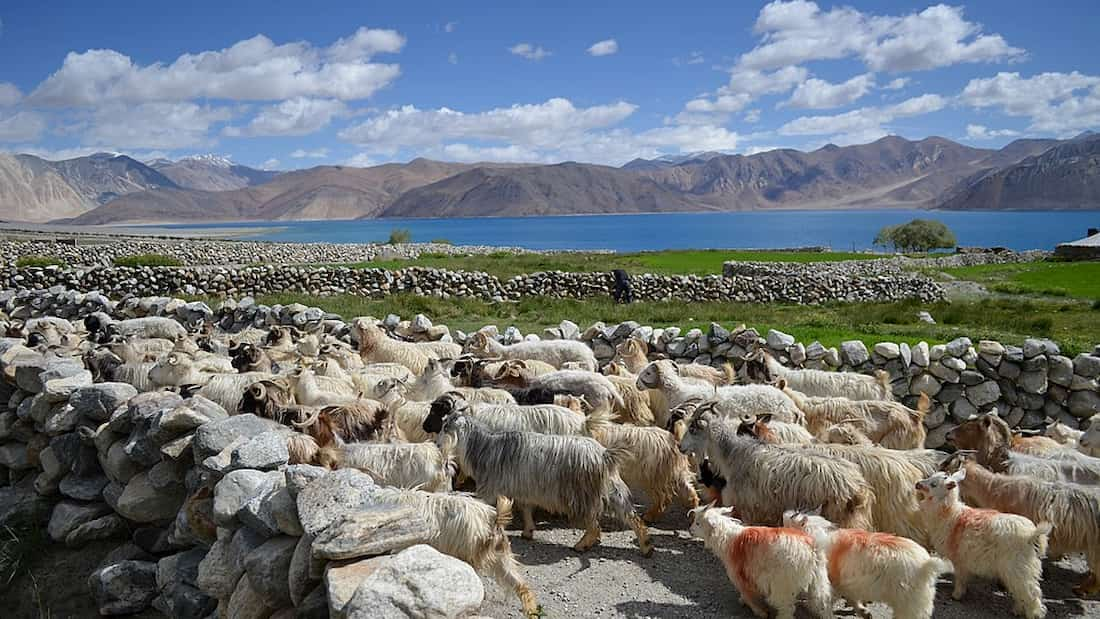Reminiscences Of Lessons Of Modesty

I am watching ‘Himalayas- The offbeat adventure featuring Chef Ranveer Brar on the television. Little do I know that it will teach me something more than just the serene Himalayas.
In the episode, Chef Ranveer Brar treads on his path to Burma, now known as ‘Myanmar’- a place which the local traveler in the Himalayas says ‘is not a popular tourist place.’ The Chef replies, ‘If you say it’s unpopular, then it’s undiscovered, too, and that’s the reason why I must discover it.’
Saying so, he starts off on his journey to Burma, wrapped in a Pashmina shawl and a strong woolen sweater and scarf.
The modest landscape of Burma pleases him, causing him to widen his sleep-deprived eyes and absorb the beauty of the land. It looks like a grassland, with short shrubs and a clean sky with sheep and shepherds almost everywhere. There aren’t any tall towers or skyscrapers that appeal to metropolitans, but who needs all the epitomes of a fast-paced life when you arrive in a place that speaks only of eternal peace? Burma is calm, modest and its people speak of simplicity.
As the Chef moves deeper into the land of simplicity, he is confronted and intrigued by two local women, walking in the direction of a small hut with balls of wool in their hands.
‘Can I join you?’ the chef asked intently.
The two women stared blankly for another minute, blushed, and timidly replied a ‘yes.’ The women in Burma were not used to talking to unknown men. For those living in the city, Chef Ranveer Brar was a worshipped celebrity and a renowned MasterChef judge. But for the modest residents of Burma, the chef was nothing more than just another unknown visitor.

Soon, they reached a small hut and the women-directed him inside.
It was very dark, very simple. The walls of the hut were dark grey and the floor wasn’t made of concrete. The roof, made of grass, gave very little light to the people inside. However, something else was glimmering inside- a hundred balls of wool were spread all over the place on the floor. Some ten women, dressed in local costumes, sat there cleaning the balls of wool and weaving it into different shapes, all with a smile on their faces. There was nothing in the room that spoke of comfort nor of luxury. Just a small fireplace, some vessels, a water pot, and they were all good.
‘How many balls of wool do you clean each day?’ the chef asked intently.
‘Around a hundred each,’ a woman replied without any complaints.
The chef simply watched them in awe. Simple living, simple lifestyle, hard work, and content- that was all for the women of Burma. The small hut didn’t contain a large television set, refrigerator nor internet. Nor were these modest folks ever imposed by these luxuries. They simply smiled.
The Chef bowed to them and walked out of the hut. He trod a little further and what he saw was a large flock of sheep. And a single, old shepherd. Curiosity mounting in him, he walked towards the old man.
He was bald, wrinkled, and very old. He was busy pulling the wool of one of his many sheep when he was encountered by the Chef.
‘Do you handle all these sheep, alone?’ the Chef asked the man.
‘Yes.’ The shepherd answered.
There were about a hundred sheep there.
‘What do you do with the wool?’ the Chef asked again.
‘I pluck the wool, then the women clean it and it is sent for the making of Pashmina shawls. I remove the wool from 85 sheep each day,’ he answered.
Awed, the Chef asked after a long pause, ‘And how much do you earn from this?’
Thus time, the old shepherd looked up blankly at the sky, eyes filled with emotion and in a cracking voice, he said, ‘7000- 10,000 Rupees per month. ‘
He went back to his sheep.

Seven thousand rupees a month- for removing the wool of a hundred sheep each day. The wool that’s sent to cities in the form of Pashmina shawls and sold for lakhs of rupees. These lakhs of rupees earned by sellers in the city are a result of the hard work and dedication of these poor shepherds, the ones who bear the grind and never witness the fruit.
How often do we tend to ignore the various small industries that work and struggle to give something big to the large-scale industries! The worker is paid in a mere thousand while his product is sold by sellers in lakhs of rupees in another city- this ignored aspect of labor is reflected in every industry- be it the backstage artists that are paid in scarcity in the glamourous film industry or the poor shepherds that refine the raw material required for the rich Pashmina shawls.
Every little object or garment is a result of multiple efforts and emotions. While the ones living in the city might never realize the plight of those living in underdeveloped rural areas, freezing in these cold villages- without internet, without any facilities that are basic in the city- all we can do to bridge this gap between the manufacturer and seller is to garner honor and respect for these hard workers and contribute some portion of our happiness to these humble humans.
Before bidding a farewell, the Chef took out a small bag from his rucksack and paused.
‘Have you ever worn a Pashmina shawl yet?’ he asked earnestly to the old shepherd.
The old man laughed. ‘Sir, Pashmina shawls are made by us but worn by those in the city. We, poor people of Burma, just pour our hearts into its making, but we can never afford a tassel of Pashmina, let the shawl alone.’
The Chef didn’t reply, but simply pulled out a pashmina shawl from his bag and wrapped it around the old shepherd.
‘Take this- It belongs to you. You are worth a lot more than this Pashmina.’
This is how the Chef resolved the biggest paradox of life.
